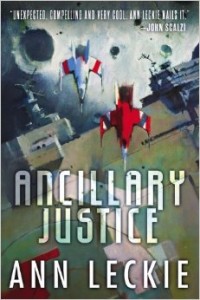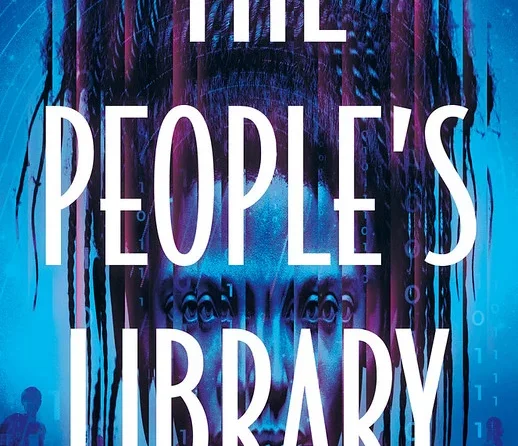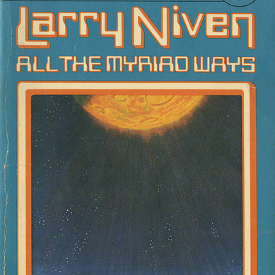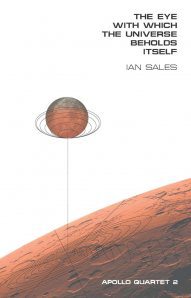 Anywhere I go on the Geek Net I can’t help seeing praise for Ann Leckie’s debut novel Ancillary Justice, the first in the Imperial Radch trilogy. Eventually I surrendered to the relentless onslaught of good reviews and picked up a copy. Now that it won the Nebula for Best Novel I think this is as good of time as any to share my thoughts on this ambitious space opera. Is it as good as all the hype says it is?
Anywhere I go on the Geek Net I can’t help seeing praise for Ann Leckie’s debut novel Ancillary Justice, the first in the Imperial Radch trilogy. Eventually I surrendered to the relentless onslaught of good reviews and picked up a copy. Now that it won the Nebula for Best Novel I think this is as good of time as any to share my thoughts on this ambitious space opera. Is it as good as all the hype says it is?
Ancillary Justice is told from the point of view of Breq, a mysterious soldier who is seeking a weapon that will allow her to find her long awaited vengeance. It is quickly revealed that Breq is actually the last remaining piece of the Justice of Toren, a millenia old warship of the Radch. The Radch are a large and powerful interstellar empire with a feudal Roman-Hindu hybrid inspired culture.
The Radch rose to power on the backs of their “ancillary” armies controlled by warships like the Justice of Toren. Ancillaries are human soldiers with their minds erased and bodies controlled by the AIs on-board Radch ships. These massive troop transports are used during brutal “annexations” or conquests of neighboring planets which leaves many of the native populations either dead, subjugated or an ancillary.
Justice of Toren met its fate during one of the last annexations, but a piece of it survived and has set out to kill the being responsible for its destruction: Anaander Mianaai, the ruler of Radch space. Anaander, however, is not a single person, but a collection of individuals united under a hive-mind, much like the ancillaries. In her quest to kill Anaander, however, Breq discovers that the stakes are far greater than her own personal quest for justice.
I will admit right up front that Ancillary Justice isn’t a usual book for me. Not that I don’t read space operas, but Ancillary Justice is unique that it sheds all of the usual tropes that go along with that sub-genre and creates something truly unique. For example, because the Radch are a gender-neutral society and their AIs tend to default to “she,” the reader never gets a clear idea about the gender of the different characters. With “diversity” being a buzz word lately in SF circles, it is refreshing to not only see a book tackle a culture that is gender-neutral, but also to challenge a reader about how they see characters when they can’t trust the narrator to tell them what gender they are.
Another philosophical question Ancillary Justice tackles is what it means to be human. Anaander Mianaai, for example, is a multi-bodied hive mind that acts more like the ship AIs that build the Radch empire. Breq, on the other hand, is a fragment of a larger AI, but acts like the morally conflicted individual that we all are. Meanwhile, the Radch as a people see themselves as the only civilized beings in the universe, while non-Radch view the Radch as being the ultimate villains because of their bloody conquests and practice of turning the dead into their dreaded corpse soldiers. So what makes a human, human? Is it how we are born, our actions, or something completely different?
Ancillary Justice is a thinking person’s space opera tale. Those looking for simpler fair should probably read something else, but I can see why Leckie is getting the praise she has received. I look forward to the next installment, Ancillary Sword, coming out this fall.









